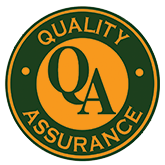Centre for Quality Assurance
Centre for Quality Assurance (CQA) aims to assist the University towards improving the quality of education and support services through the promotion of quality management.
Vision
We strive to create a culture of quality within the organisation.
Mission
To promote quality culture towards realising quality education by leveraging on supportive policies, framework and work environment.
Objectives
The objectives of CQA are:
- To drive quality initiatives towards improving programmes and services in OUM;
- To improve OUM’s quality management system for greater effectiveness and efficiency, and
- To drive quality culture among staff for greater productivity and increased efficiency towards performance excellence.
Services
I. Quality Document Repository
CQA is responsible for maintaining a repository of OUM Quality Documents. The documents maintained are the Quality Manual (QM), Manual Operating Procedures (MOP) and Standard Operating Procedures (SOPs) which are being used at all departments and learning centres within OUM and METEOR subsidiaries.
CQA provides assistances to departments and learning centres to compile, review and update their quality documents. The review process involves numerous discussions and workshops. These updated documents serve as the ‘controlled documents’ for use of relevant staffs as well as auditors.
As the owner of the repository, the departments and learning centres are required to register and constantly update CQA of the latest version being used at respective offices. The documents are shared with all staffs at eQMS system which can accessible through the University’s portal.
II. Audit Management
CQA manages internal audit for the whole University. The Institute coordinates audit activities for all SIRIM certified and non-certified departments and learning centres for quality control and continuous improvements. Internal audits are carried out by a pool of trained internal auditors. The pool of auditors comprises of certified lead auditors as well as trained auditors.
Every year, CQA prepares an annual audit plan and assign auditors to specific department/learning centres. In ensuring smooth internal audit, CQA’s role is to ensure proper arrangement for the visit, provide the Audit Kit, collating and analysing the audit reports.
Each audit team comprises of a lead auditor and trained auditors. Duration and number of auditors assigned for audit very much depends on the number of processes to be audited. Audits are scheduled either yearly or biannually for each department/learning centre depending on criticality and arising needs.
Even though, only two departments in OUM undergo ISO 9001 certification, the University’s management insisted that all departments as well as learning centres be audited according to the International Standard.
III. Quality Training
In order to ensure good understanding of quality requirements, CQA provides training programmes to staffs primarily focusing on auditors, document controllers, management representatives, heads of departments and process owners. This helps to ensure that key personnel are equipped with the right knowledge and skill to carry out their job. For instance, head of departments are expected to impart their knowledge to their subordinates to ensure quality standard are being practised at all levels.
Training programmes were designed based on feedbacks obtained from audit activities as well as new requirements set by quality standards. CQA also conducts internal training on the new standard.
Refresher courses were also conducted to reacquaint staffs to quality standard or bring their knowledge and skills up to date.
IV. Quality Improvement Management
Quality Improvement Management is an applied management concept whereby CQA manages and coordinates the efforts of conducting Quality Improvement or Strategic Projects aimed at finding innovative and effective solutions towards improving quality. In doing so, CQA adopts two main approaches namely CDP Approach (Cross Departmental Process) and the “3 Es” Approach (Effectiveness, Efficiency and Economical).
Utilizing CDP Approach, CQA and the Management are able to look at the big picture of the University requirements and hence implement improvement initiatives comprehensively. As for the “3 Es” approach, it allows CQA to work hand in hand with all levels of staff to eliminate redundancy, ensure that for every job the right person is assigned and wherever appropriate promote automation or the usage of Information & Communication Technology (ICT) to all departments, centres and institutions within the University.
V. Promotion of Quality Culture
The most crucial and challenging role of CQA is to ensure assimilation of quality culture in the day to day practices throughout the University. In order to achieve this, adaptation of quality practises at all levels of staff “anytime” and “anywhere” without having to be monitored must be inculcated amicably where at the end of the day everybody embraces quality as a way of life and appreciate this as the way forward.
CQA supports the implementation of “5S” methodology and aspiration for improving productivity, eliminating wastages (wasteful materials and processes) and ensuring an all-round development. Such efforts help assimilating quality culture to all core processes. CQA also takes the initiative to review cross departmental functions, close the gaps between the departments and implement continuous improvements.
Enquiries, Complains and Feedback
For all Enquiries, Complains and Feedback, please drop us an email at iqm@oum.edu.my.
